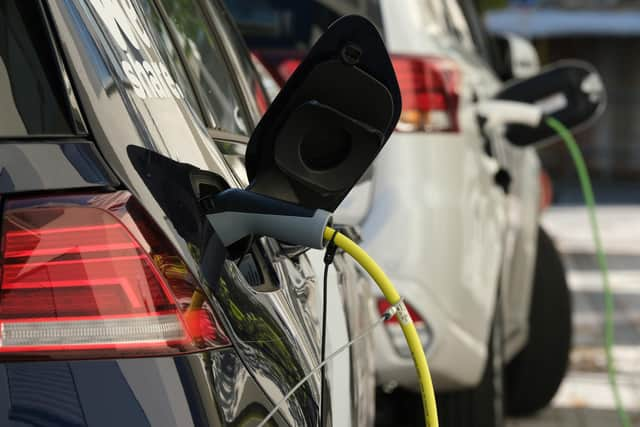Climate change should be treated as an emergency in the same way as the pandemic claims a new study
The report also recommends that governments should keep keep the public informed about climate emergencies in the same way they have with data during the pandemic, with real-time reporting about loss of life and the damage caused by the impact of adverse weather.
Led by the Glasgow Caledonian University (GCU) Centre for Climate Justice, the study focused on the experiences of policymakers in parts of sub-Saharan Africa.
Advertisement
Hide AdAdvertisement
Hide AdA common concern reported in the research was a fear that resources channelled towards the pandemic response would detract from resources previously allocated to climate action, or that there would be a "downright reduction" of financial commitments.


The study recommends that industrialised nations must be encouraged to commit higher levels of financial support and technology transfer to the developing world.
Researchers also looked at how the pandemic has affected the implementation of the Nationally Determined Contributions (NDCs), national plans for climate action submitted by countries under the Paris Agreement in 2015.
The research consortium included the Pan-African Climate Justice Alliance (PACJA) and academic partners in Africa.
GCU's Dr Sennan Mattar, who coordinated the work alongside Dr Michael Mikulewicz and partners from PACJA, said: "Although Africa accounts for a very small portion of global greenhouse gas emissions, African governments are committed to doing their share in stopping the climate crisis.
"However, many of their NDCs are conditional on receiving adequate financial support from industrialised nations.
"Combined with the existing considerable development challenges across the African continent, it is crucial that NDC and development funding is not stopped or curtailed despite the economic fallout caused by the pandemic in wealthier nations."
The study included a desk-based review of literature, an online qualitative survey and semi-structured interviews with participants from public, private and third-sector organisations in Ivory Coast, Ethiopia, Gabon, Ghana, Kenya, Morocco, Nigeria, and South Africa.
Advertisement
Hide AdAdvertisement
Hide AdA number of those interviewed observed that climate change, "despite ultimately being more deadly than the virus", has "failed to elicit the same level of urgency" among governments and civil society.
The research found that the public health restrictions placed on gatherings and face-to-face contact for consultations were singled out as the most devastating impact of the pandemic for the NDC development process, which caused "significant delays" while workarounds were developed.
Researchers said there is a need to integrate Covid-19 recovery with climate action.
Dr Mithika Mwenda, executive director of PACJA, said: "We are now past the point where we can address the Covid-19 pandemic and the climate emergency as separate crises.
"This report shows that the pandemic has not only forestalled urgently needed action to halt and begin reversing global warming, but it has also worsened existing vulnerabilities to climate change, weakened the adaptive capacities of communities and countries, especially in Africa, and raised the cost of future climate action.
"We, therefore, cannot have pandemic recovery plans that serve as excuses to further delay ambitious climate action.
"To be deemed successful, these plans must integrate the twin risks posed by Covid-19 and climate change by freeing up resources for the implementation of NDCs."
A message from the Editor:Thank you for reading this article. We're more reliant on your support than ever as the shift in consumer habits brought about by Coronavirus impacts our advertisers.
If you haven't already, please consider supporting our trusted, fact-checked journalism by taking out a digital subscription.
Comments
Want to join the conversation? Please or to comment on this article.
